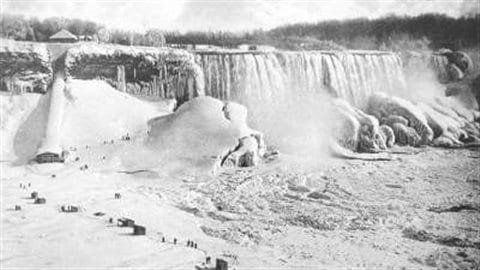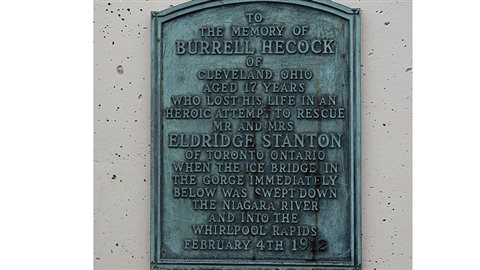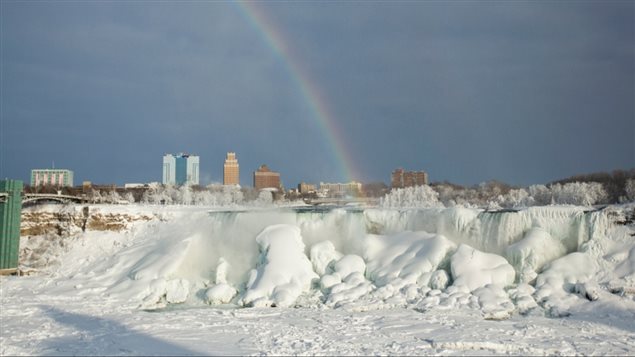The Arctic like weather and record low temperatures gripping central and eastern Canada have had a beautiful affect on the two waterfalls at Niagara.
Falls not frozen over
In spite of reports in some newspapers internationally however, the Falls have not stopped flowing.
The Falls did stop, briefly in 1848 when in March, winds pushed Lake Erie ice into a giant dam at the mouth of the river, stopping the flow for some 30 hours, until pressure made an explosive release of water cascading back down the channel and over both the American and Horsehoe (Canadian) Falls.

The combined flow rate of the falls is the highest of any in the world. At peak season the flow rate may reach 6,400 cubic metres/ second,
The flow rate of the entire river over the falls is never at full capacity as a percentage is drawn off above the falls, and diverted through Hydro Electic generating stations in both the US and Canada, although during daylight and summer tourist season, a specified amount must be allowed to pass over the falls. During summer tourist season at least 2,800 cubic metres goes over the falls, about 90% of which goes over the Canadian Falls.
The Canadian Falls are higher and wider with greater water flow and also have no moraine piles of rocks beneath the falls and so do not get the same ice build-up effect as the American Falls. However, the mist rising from the falls quickly freezes on branches, and light posts making a somewhat fairy-tale effect.

Where previously the ice jam completely filled the Niagara Gorge below both falls, the water beneath never stopped flowing. For decades people would travel out onto the ice between roughly mid January to mid-February during which time it was relatively solid but nonetheless remained in flux due to rising and lowering water flows and the incredibly powerful current.
However, on February 4th, 1912, the ice bridge suddenly collapsed carrying three people to their deaths, resulting in the end of the practice of allowing people out onto the ice.
In January 1938 an ice jam caused the collapse of the Falls View International Bridge, also known as the Honeymoon bridge river above the falls to prevent a damming of ice toward the falls,
Since 1964, an ice boom has been installed at the upper mouth of the river above the falls, at the eastern end of Lake Erie to prevent a massive ice jam in the river.







For reasons beyond our control, and for an undetermined period of time, our comment section is now closed. However, our social networks remain open to your contributions.